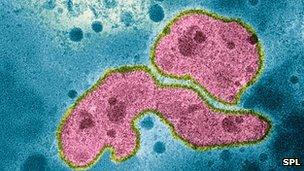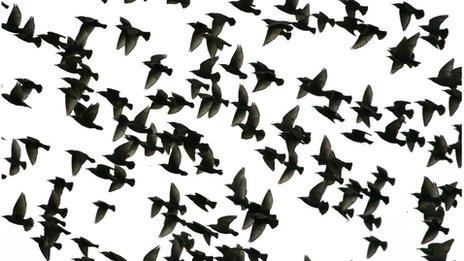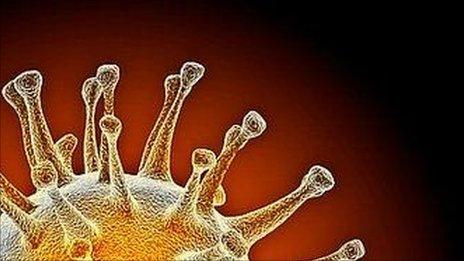H5N1 bird flu research to be published in full
- Published
- comments

Bird flu does not pass easily between humans
The author of controversial research on the H5N1 bird flu virus is delighted his work looks finally set to be published.
Prof Ron Fouchier, from the Erasmus Medical Centre in Rotterdam, said it was the only way to advance scientific knowledge and public health.
The US National Science Advisory Board for Biosecurity (NSABB) ruled Prof Fouchier's work, and that of Dr Yoshihiro Kawaoka of the University of Wisconsin, posed no threat to public health or national security.
It has sent its recommendation to the US government for approval.
The H5N1 virus is lethal to birds, but does not transmit easily to people.
However, these papers showed how just a handful of mutations could make it infectious in aerosol form to ferrets - animals which are the best mimic for how it might affect humans.
The issue provoked huge debate among the scientific community as to whether details of the research should be kept secret or released in full only to those working in the field of virology.
Security risk
There was intense concern that - in the wrong hands - the research could help create a bio-weapon.
But following revisions of the two papers, they look set to be published in full by the journals Science and Nature.
Prof Fouchier said he had revised his paper - not to conceal any details - but to add more information.
He said: "We have made it clear that the virus is much less lethal than had initially been thought by the NSABB.
"We have also added data on how we did this work safely and explained better the benefits of the research with respect to pandemic preparation."
Much misunderstanding
Fergus Walsh talks to Prof Ron Fouchier of Erasmus Medical Centre in Rotterdam.
Prof Fouchier said there had been a lot of misunderstanding about the mutated virus he created and admitted the initial version of his research could have been clearer.
There had been widespread media reports that the virus, in its aerosol form, killed every ferret exposed to it.
Prof Fouchier said it did not kill any of them, and was lethal only when sprayed directly into the nose of the animals.
The NSABB said it strongly supports the "unrestricted communication of research unless that information could be directly misused to pose a significant and immediate risk to public health and safety."
Prof Paul Kein, chair of the NSABB praised the researchers involved: "What you've seen is incredibly responsible behaviour by entire scientific community."
The decision of the US panel will be broadly welcomed by leading science bodies, but the issue raises important questions as to when it may be right to censor science which has the potential both to help and harm mankind.
- Published31 March 2012

- Published17 February 2012

- Published31 January 2012
- Published20 January 2012

- Published30 August 2011
